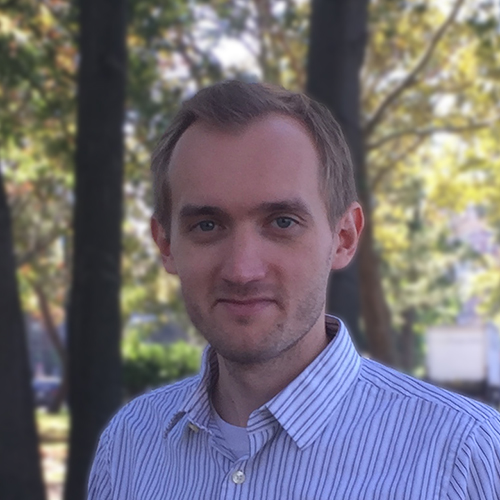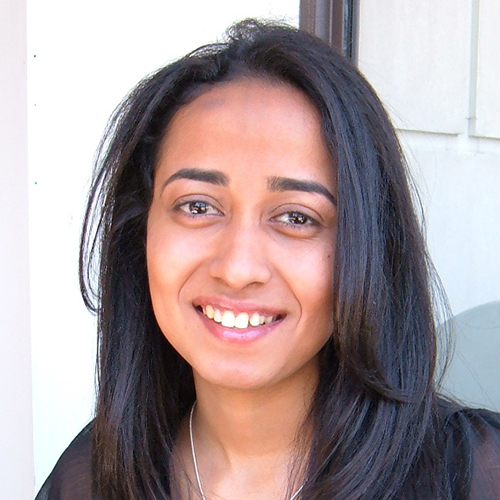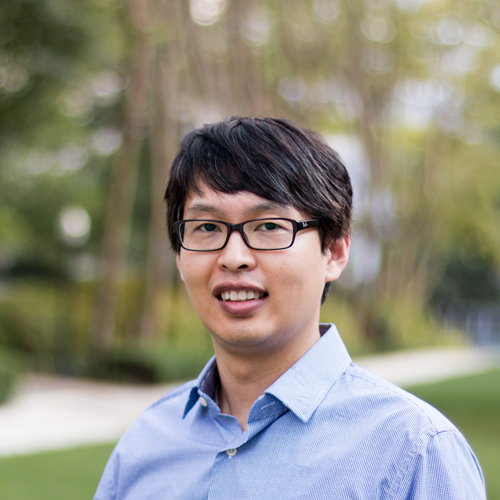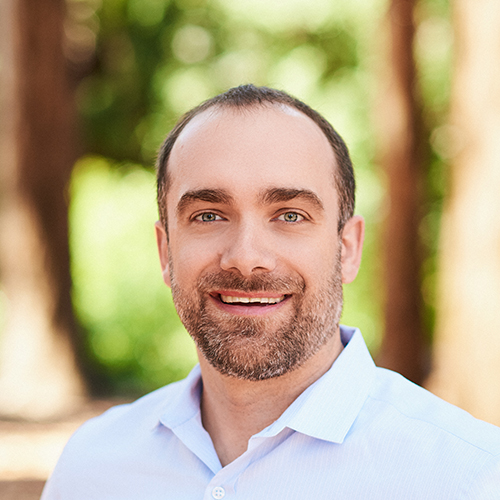


Denis Titov, who has joined MCB as an assistant adjunct professor of cell and developmental biology, describes his discovery of science as “an accumulation of many small moments” in his life. From watching Russell Crowe’s portrayal of a chemist in the film Insider to reading Jean-Marie Lehn’s book, Supramolecular Chemistry, Titov began to see science as a kind of superpower when it comes to understanding how the world works. “I soon realized that biology is already the world of molecular machines doing all kinds of cool tasks, and from then on I was fascinated with biology,” he remembers.
Today his work focuses on metabolism and the mechanisms of aging. His lab uses a combination of biochemistry, physiology, mathematical modeling, and novel tool development to study aging in cell culture and model organisms. Titov’s long-term goal is to investigate the molecular basis of inactivation of cellular functions during aging to understand the details of how cellular machinery breaks down and how genes and environment modulate this process. In the years ahead, he plans to use the tools he’s developed to study how diet and exercise can affect aging and age-associated diseases.
Titov came to MCB because “It’s one of the best biology departments in the world, and it’s located in a beautiful area next to the hub of the biotech industry,” he explains. “I can’t imagine a better place to be doing biology research than at MCB and UC Berkeley.”


Priya Moorjani joins MCB as an assistant professor in the Division of Genetics, Genomics and Development, and will also be affiliated with the Center for Computational Biology (CCB). She had always been fascinated with population history and genetics, but it wasn’t until she took a population genetics lab during her PhD rotation that she became fully aware of how powerful genetic data could be for reconstructing evolutionary history.
Now she’s using genetic data from ancient specimens and present-day individuals to learn about population relationships and evolutionary dynamics. As changes to the genome occur steadily over time, due to mutation and recombination events, they provide a record of the time elapsed. She’s developed a variety of computational and statistical tools to apply population genetics theory to uncover signatures of genetic variation associated with these evolutionary processes. “It’s been exciting to be part of this genomic revolution,” she says.
Moorjani was attracted to Berkeley and the department for its rich intellectual environment and strong emphasis on research and education. “The MCB department here was a big factor in my decision to come to Berkeley,” she says. “It has a strong community of scientists from diverse fields including evolutionary biology, human genetics, and structural and cell biology. Combined with the recent Data Science Initiative with CCB and the emphasis on interdisciplinary research, this is a remarkable and very exciting place for starting my independent research career.”


Eunyong Park, an expert in mechanisms of membrane transport, joins MCB’s faculty as an assistant professor of biochemistry, biophysics and structural biology whose research studies proteinconducting channels. Among his long-term research interests is to use biochemical, biophysical, and structural approaches to understand the mechanisms by which ions and molecules are transported across cell membranes.
Park originally majored in chemical engineering as an undergrad in Seoul, South Korea, but after taking a few molecular biology courses he became fascinated by the complexity and sophistication of biological systems. “Learning that many protein complexes work like tiny machines really drove me to studying the structure and function of proteins,” he says.
Park comes to Berkeley from the Rockefeller University in New York and is looking forward to using the campus’s excellent cryo-electron microscopy tools. “State-of-the-art microscopes are readily accessible here, and close interactions with many cryo-EM researchers and world-renowned pioneers like Robert Glaeser and Eva Nogales will really help me to overcome technical challenges in my research,” he says.
But there are also broader reasons why he’s glad to be at Berkeley. “Beyond MCB’s excellent research environment and world-renowned faculty, the most important consideration for me was student quality,” he says. “Nothing is more fun and more gratifying than working with talented students who are eager to engage with difficult problems. Berkeley was an easy answer in that regard.”


Michel DuPage, a new assistant professor of immunology and pathogenesis, focuses on examining the interface of the immune system and cancer. His lab hopes to establish a new paradigm for augmenting immune responses against cancer by uncovering and subsequently targeting mechanisms that control the functional plasticity of T cells. It’s utilizing sophisticated genetic tools to modify T cells and tumor cells in a dynamic fashion during tumor progression and in the context of the most advanced pre-clinical cancer models of the human disease. “I hope to build upon the great tradition in cancer immunotherapy that all started here,” he says, “with Jim Allison’s pioneering work that led to checkpoint blockade cancer therapy.”
For DuPage, who attended Berkeley as an undergrad, a subsequent stint at Genentech opened his eyes to the exciting potential of taking basic research discoveries and turning them into patient therapies. “I was captivated by the role the immune system played in the effectiveness of the first antibody therapeutics,” he says. “It was there I decided I wanted my research to focus on learning how to train our own immune systems to fight cancers.”
Berkeley and MCB drew him back with their focus on interdisciplinary research that offers new perspectives, unique intersections, and novel ways to tackle his own scientific problems. “I love that teaching is a core value of this community,” he says. “Plus, there are amazing technologies and developments just waiting to be applied to my own biological questions!”




